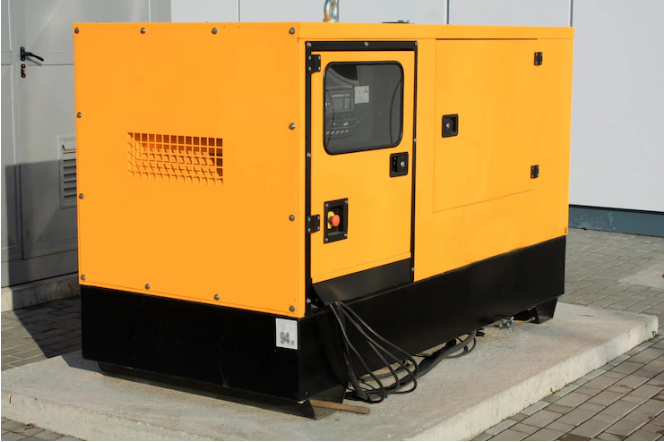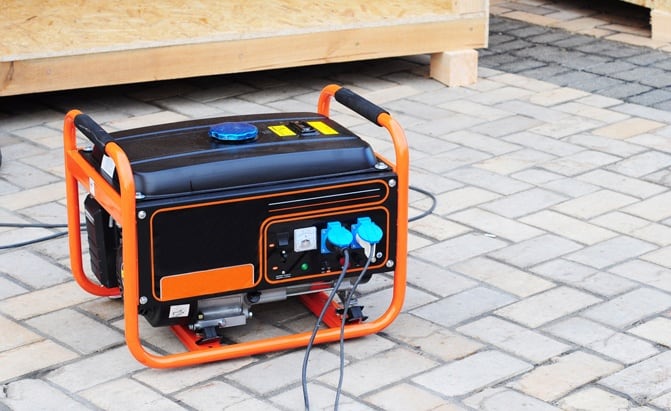Things You Should Know Before Investing in a Portable Commercial Generator

Investing in a Portable commercial Generator is a great way to ensure that your business is running during a power outage. The generator can power many of the essential appliances and equipment that your business uses. But, there are some things you should know before you invest in a generator.
Fueling a generator
Choosing the right type of fuel for your portable commercial generator can make a big difference in how long you’ll be able to run it. Some generators run on gasoline, natural gas, or propane, while others are powered by a combination of fuels.
Depending on your location, different types of fuels may be more or less available. They also vary in price. You’ll also need to consider the cost of storing the fuel.
Gasoline is the most popular fuel for generators. It’s easy to find and relatively cheap. However, it doesn’t last as long as other fuels. It’s also flammable and can cause an instant fire. A fuel stabilizer can extend the life of your gasoline.
Diesel is another popular fuel option. It’s cheaper than gasoline and doesn’t require as much upkeep. Diesel is also one of the cleanest burning fuels. However, it does produce heavy smoke and particulate exhaust.
Liquefied petroleum gas (LP) is another common fuel option for generators. It has slightly more energy than natural gas. It is often used to power residential and commercial buildings. However, it is not as long lasting in storage.
Proper maintenance
Performing proper maintenance on your portable commercial generator is a key part of owning one. Failure to do so can mean the difference between power and no power. It can also result in serious consequences. If your generator fails, you may have no power and your facility could face financial loss.
The maintenance required to run a power generator can vary greatly depending on the type of generator you have. For example, a diesel generator may require less maintenance than a natural gas generator. The same goes for a propane generator.
To perform the proper maintenance of a portable commercial generator, you need to check for wear and tear, and to make sure your unit is properly lubricated. A regular service and maintenance routine will keep your portable generator running smoothly and help it last longer.
There are many moving parts in a power generator, so you will want to be sure that all components are functioning properly. These include the exhaust system, the fuel system, and the DC electrical system. It’s also important to check for leaks in the exhaust system and fuel lines.
Outdoor vs indoor generators
Whether you’re a building owner or a generator contractor, choosing between an indoor or outdoor installation can be a big decision. There are numerous advantages to choosing an indoor generator.
Indoor generators are especially attractive to medical facilities and data centers. They provide a variety of benefits, including noise reduction, easier access, and more convenient maintenance. However, they require more preparation and building renovations. They are also more expensive to install, which means you’ll pay more for the generator itself.
Indoor generators are also more suitable for locations with high load reliance. For example, medical facilities cannot perform lifesaving functions without power. Also, indoor generators offer a low risk of being tampered with by outsiders. They are also safer, because they don’t come into contact with foliage or brush.
Indoor generators are more likely to require more expensive features, like sound attenuation and climate control infrastructure. These can reduce noise levels and protect equipment from damage.
Common equipment that can be powered by a generator
Whether you are in the middle of a power outage or just want to power your home or business, a portable commercial generator can be the solution. They can provide emergency power and help prevent the loss of valuable production time and resources.
The primary use for a generator is for electrical power distribution during power outages. These tools can power phones, lights, walk-in coolers, and other devices. If you are planning to use them, you should check the starting wattage for your appliance.
Most generators run on gasoline or propane. However, some models also run on natural gas. They also come in a variety of different sizes. The larger the engine, the more power it can provide.
Some generators also have electric start models. These models may cost more than pull-cord models. Electric start models require battery charging. In addition, some models need priming before cranking.
These generators can also be connected to a temporary distribution panel. These panels can be used to protect electrical cables and provide an additional outlet. They are often used for construction projects or on job sites. They can provide 50 amps of temporary power.


